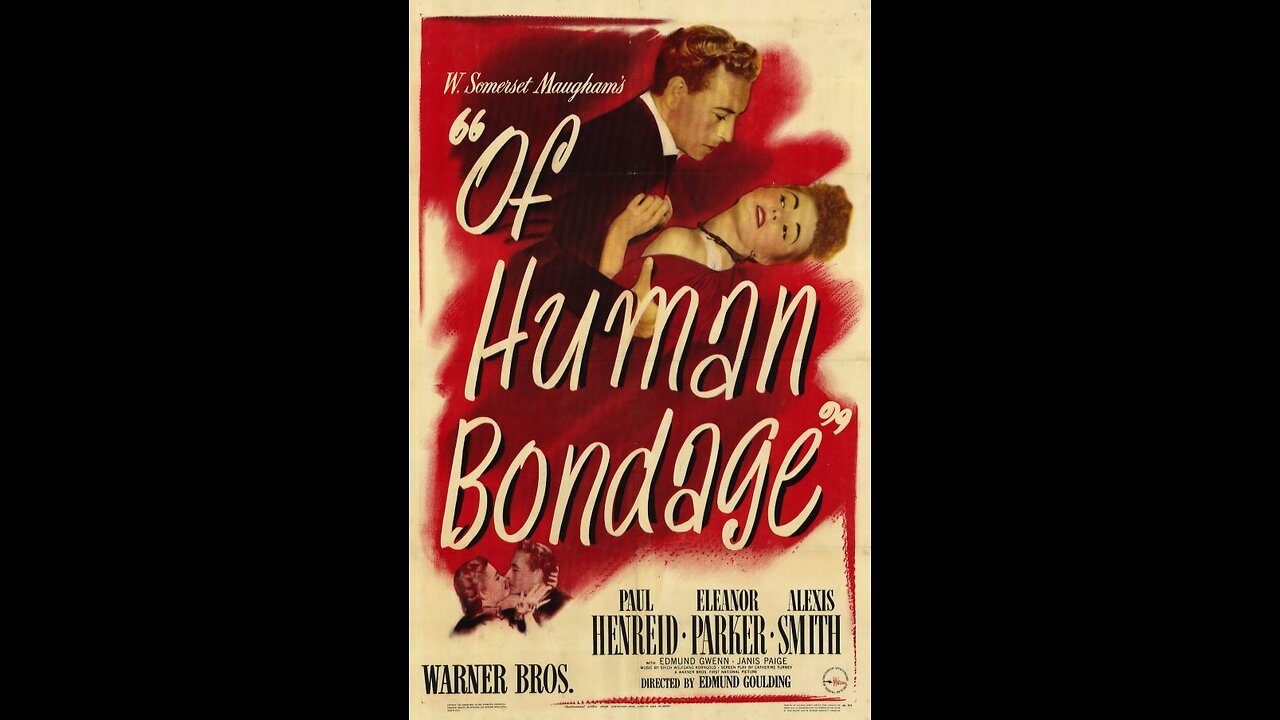Premium Only Content

Of Human Bondage (1934) | Directed by John Cromwell
"Of Human Bondage" (1934) is a drama film directed by John Cromwell, based on the novel of the same name by W. Somerset Maugham. The film stars Leslie Howard as Philip Carey, a young man with artistic aspirations, and Bette Davis as Mildred Rogers, a troubled and manipulative waitress with whom he becomes infatuated.
Directed by John Cromwell, "Of Human Bondage" is a poignant exploration of obsession, unrequited love, and the complexities of human relationships. The film follows Philip Carey's life from his days as a medical student to his struggles with a tumultuous and destructive romance with Mildred.
Leslie Howard delivers a nuanced performance as Philip Carey, capturing the character's vulnerabilities and internal conflicts. Bette Davis, in one of her early roles, stands out as Mildred Rogers, portraying her with a mix of vulnerability and cruelty. The dynamic between Howard and Davis is a central element of the film's emotional impact.
The film addresses themes of self-discovery, personal growth, and the destructive nature of toxic relationships. It doesn't shy away from portraying the darker aspects of human emotions, making it a raw and emotionally charged cinematic experience.
"Of Human Bondage" received critical acclaim for its powerful performances and its daring portrayal of complex and flawed characters. Bette Davis's performance was particularly praised and marked a significant point in her career.
While the film has been praised for its emotional depth and character development, some critics may argue that certain aspects of the narrative feel melodramatic or dated by modern standards. However, its impact on classic cinema and its portrayal of human relationships continue to be appreciated.
In conclusion, "Of Human Bondage" (1934), directed by John Cromwell and starring Leslie Howard and Bette Davis, is a classic drama that explores the intricacies of human emotions and the consequences of obsessive love. The film's strong performances and its unflinching portrayal of complex characters contribute to its enduring significance in the history of cinema.
-
 2:06:00
2:06:00
Classic Films & Movies Archive
9 days agoThe White Cliffs of Dover (1944) | Directed by Clarence Brown
2761 -
 LIVE
LIVE
Total Horse Channel
2 hours ago2025 URCHA Futurity | Derby & Horse Show | Sunday
74 watching -
 9:06
9:06
nospeedlimitgermany
1 day agoMercedes-Benz 500 SE W126 | 231 PS | Top Speed Drive German Autobahn No Speed Limit POV
1.01K1 -
 23:49
23:49
marcushouse
1 day ago $0.34 earnedStarship Flight 10 Secrets Revealed & Future of Starbase! 🔥
1.15K1 -
 3:00
3:00
scoutthedoggie
23 hours agoNovritsch SSG-96 Mk2 Airsoft Sniper Rifle
906 -
 2:07:31
2:07:31
The Connect: With Johnny Mitchell
21 hours ago $23.14 earnedSecrets Of The Cocaine Cowboys: Miami Drug Lord Reveals Truth About His BILLION-DOLLAR Coke Empire
146K15 -
 21:20
21:20
AndresRestart
17 hours ago $0.64 earnedNintendo's GENIUS Mario & Zelda 40th Anniversary Plan!?
13.5K3 -
 10:35
10:35
Blackstone Griddles
17 hours agoPerfect Ribeye Every Time | Blackstone Griddles
1.13K2 -
 17:43
17:43
Mrgunsngear
15 hours ago $0.71 earnedMKE AP5 SD Review: The Best MP5 Clone?
2.59K5 -
 LIVE
LIVE
The Official Steve Harvey
19 days ago $12.57 earned24 HOURS OF MOTIVATION w/ STEVE HARVEY
65 watching